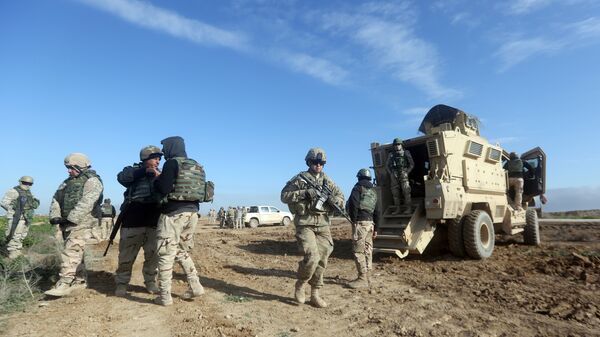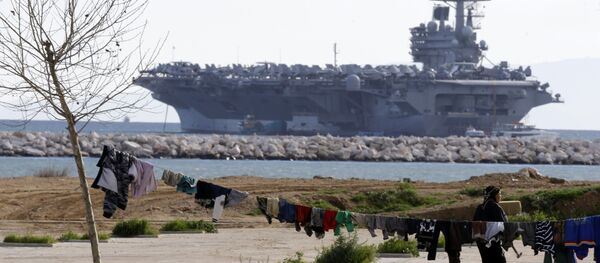"Counterterrorism efforts and the crackdown on corruption are Baghdad's priorities," she said. "Trump's standoff with Iran, Iraq's ally and partner, does not fit here. Moreover, this is extremely dangerous. Prominent Iranian political analyst Hossein Mousavian, my longtime acquaintance, wrote that Trump 'would not be able to destroy Daesh if he does not cooperate with Muslim countries. … He will also fail to do that if he does not work together with Iran and Russia.' I would suggest that Iraqi Prime Minister Haider al-Abadi shares this point of view."
The Trump administration has named defeating Daesh and other jihadist groups as its "highest priority." To that end, the White House has pledged to carry out "aggressive joint and coalition military operations" if and when required, as well as work on cutting off funding for terrorist groups, expanding intelligence sharing and engaging in cyberwarfare "to disrupt and disable propaganda and recruiting."
This is why Baghdad has been alarmed by the anti-Iranian trend in Washington's foreign policy at a time when Trump's approach to the Middle East has not been fleshed out.
"It is a challenge for the Iraqis to make sense of America's new policy in the Middle East," the analyst observed. "In the two months that he is in office, Trump, in their view, remains as unpredictable as before. However, it was easier for Saudi Defense Minister Mohammed Bin Salman, who recently met with Trump. Saudis, like Israeli Prime Minister Benjamin Netanyahu, have tried to channel Trump's energy against their longtime regional rival, Iran. This is a dangerous trend for Iraq."
Suponina explained that Baghdad's stance is unique in that the current Iraqi leadership is on the one hand grateful to the US for overthrowing Saddam Hussein, but on the other has close ties to Iran.
"This is an administration that … wants to push back hard on Iran. It's not quite clear what that means, but they also don't want to become badly entangled in the region. Now you want to pick a fight with Iran? That battlefield is Iraq and Kurdistan. And that would be the worst possible thing," he said during a panel discussion at the Sulaimani Forum.
The event, held on March 8-9, was organized by the Iraq-based Institute for Regional and International Studies (IRIS).
Never miss a story again — sign up to our Telegram channel and we'll keep you up to speed!




